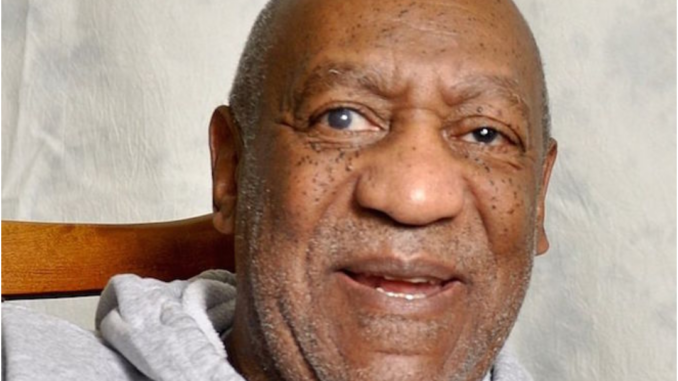
This reflection contains references to sexual violence.
Throughout my childhood, I got my hair cut in an Italian barbershop. My father and I would drive across town to the shop in Vancouver’s Commercial Drive neighborhood. Commercial Drive was filled with echoes of Italy: strong coffee and delicatessens and men in blazers and dress shoes waving their arms in argument over games of bocce.
And the barbershop. Thinking back on it, I can scarcely believe how much it was like a scene out of a movie: the barbershop was filled with props and characters borrowed straight from central casting. Here were the old school chairs in which you sat to get your haircut; here were the barbers with their white coats and their dark eyebrows and their fluid, midsentence transitions between English and Italian; here were the men by the window, there not to get a trim but, rather, to read the newspaper and pass the hours of the day. Here – the final, perfect element – was the little room in the back in which a man gave music lessons: my childhood haircuts were scored by the sound of a halting accordion.
I realized a while back that those trips to the barber with my dad were a cherished memory for me. Not because anything extraordinary happened during my haircuts but almost for the very opposite reason: those trips were a study in the beauty, the holiness of the everyday.
Because I loved going to that barbershop, because I loved remembering it later, I didn’t know what to do when, a few years ago, I read the news that the accordion teacher in that little back room had been convicted of sexually abusing his students for years.
When I read that horrifying news, it felt like something beloved in my memory had gotten broken.
I guess I am remembering that barbershop and the new, painful way that I think of it today – Was I listening to the victims play their accordions as I got my haircut? Did my cherished memory take place within their nightmare? – because of Bill Cosby’s conviction for sexual assault last week. Like the barbershop and the residents of Commercial Drive who populated it, Cosby was one of the leading characters in my childhood. I watched “The Cosby Show” faithfully. I watched it not just because it was funny but because it was a source of comfort, of reassurance: Cosby, as Dr. Huxtable, was avuncular, wise, kind. Via the television, he functioned a kind of favorite neighbor to me.
My memory has been profoundly altered and shaken by what we have learned about Bill Cosby over the last several years, by the mounting evidence that he was a serial sexual predator before, during, and after the time that he put on Dr. Huxtable’s kindly and goofy smile. As Wesley Morris put it so ruefully and so accurately in the New York Times, “Mr. Cosby told lots of jokes. [Dr. Huxtable] was his sickest one.”
And so this is what I am wondering today: what am I to do with my past? With the barbershop and The Cosby Show, both of which sit like fractured mirrors on the floor of my memory? I can barely see what I used to know, what I used to love, through the cracks in them.
Melissa Skelton, the bishop back in my hometown, challenges her clergy with the question: Where is the good news? In what you are preaching, in what you are writing, where is the Gospel? I’m thinking of Bishop Melissa’s question now. (Maybe “thinking” isn’t strong enough language: I am struggling with her question now.) Where is the good news as we shine the light into the dark of the barbershop’s back room, as we shine it behind Bill Cosby’s safe and friendly mask?
I have the beginnings of a few, halting answers to that question. First, and maybe most obviously, this news is good because is indicative of legal justice. The music teacher did not commit his crimes with impunity. Bill Cosby, notwithstanding his fame and power, did not commit his crimes with impunity. The courts, which have failed the victims of sexual violence so early and so often, did what they were supposed to in these cases.
Second, this news is good because of a second kind of justice, of what we might call moral or cultural justice. The #MeToo movement, the #TimesUp movement, the brave voices of survivors: these communities and individuals are, to borrow Dr. King’s celebrated words, helping to bend the moral arc of the universe towards justice. Our society is changing. Bill Cosby was convicted because a jury broke with longstanding practice and chose to believe the women who told the truth in the courtroom.
Finally – and this is harder to articulate, harder to name or to quantify, but I’m going to try – this news is good because, if we let it, hurt will almost always prove to be our teacher. If I know anything about being present with someone in grief it is because I bear the wounds of my own griefs. If I know anything about compassion it is because I bear the wounds of my own losses. If I know anything about justice it is because I bear the wounds of my own encounters with injustice.
I don’t know yet what the wounded memories of the barbershop and of “The Cosby Show” will have to teach you or me. But I trust that, like so many of our other hurts, teach us they will. Over time, our wounds become scars. And sometimes, with God’s help, the day comes when we are able to look upon them and, notwithstanding the memory of pain, understand something new.